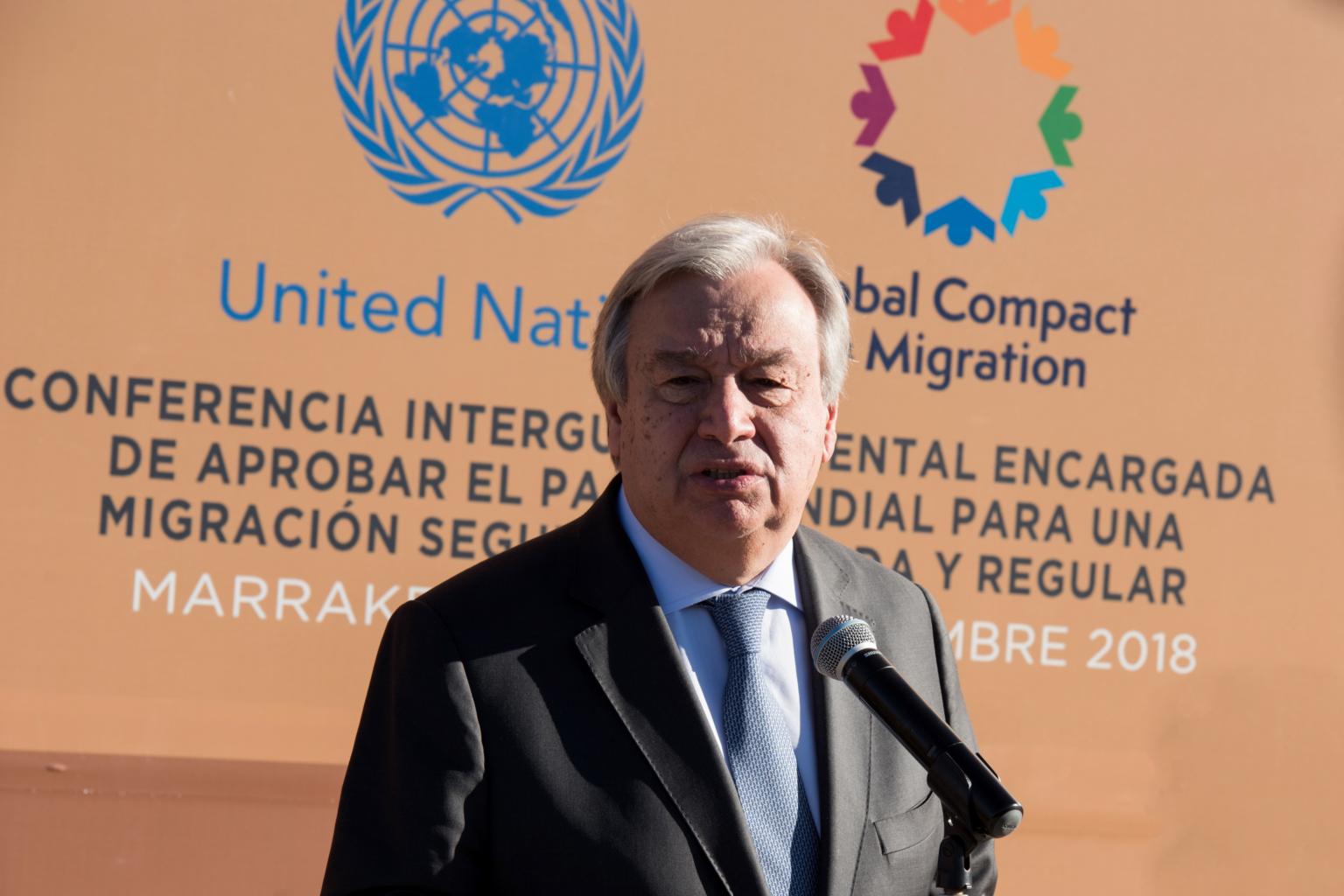Summon political will to make Poland climate talks a success: UN chief urges nations
Sign up now: Get ST's newsletters delivered to your inbox

United Nations Secretary-General Antonio Guterres speaks to reporters during the Intergovernmental Conference on the Global Compact for Migration in Marrakech, Morocco, on Dec 10, 2018.
PHOTO: EPA-EFE
Follow topic:
KATOWICE, Poland - Progress has been made at the United Nations (UN) climate talks in Katowice, Poland, over the past 10 days. But to take things forward, nations need to summon their political will and ramp up their ambitions of dealing with climate change, UN secretary-general Antonio Guterres said on Wednesday (Dec 12).
"We need to accelerate those efforts to reach consensus if we want to follow up on the commitments made in Paris," he said at COP24, as the UN climate talks are called.
Touching on the contentious issues of finance, and the differences in circumstances between developed and developing countries, Mr Guterres urged national representatives to work out their differences and find common ground, "to show the world that we are listening, that we care".
On finance, he urged developed countries to scale up their contributions, adding that the financial obligation from developed countries to support efforts of developing countries was enshrined in the UN Framework Convention on Climate Change (UNFCCC) when it was adopted in 1992 - more than 25 years ago.
"It's very difficult to explain to those suffering from the effects of climate change that we have not managed to find predictable support for the actions that must be taken," Mr Guterres said.
And while the UNFCCC and 2015 Paris Climate Agreement recognise that countries have different realities, different capacities and different circumstances, it was important to find a formula that balances the responsibilities of all, he said. "This will allow us to have a regime that is fair and effective for all," Mr Guterres said at the closing of the high-level session of the Talanoa Dialogue at COP24.
The event was the culmination of the year-long consultation session between countries, businesses, scientists and civil society.
Mooted by the Fijian government at last year's UN climate talks in Bonn, the Talanoa Dialogue aimed to help countries take stock of their current climate actions, and decide how to step up ambition for the next set of national climate pledges in 2020 to bring down global emissions further. There were two phases to the Talanoa dialogue - the preparatory phase, during which nations collected input from local, national, regional bodies; and the political phase, with ministers discussing the inputs at COP24.
The climate talks in Katowice in Poland aim to agree on a rulebook that will allow the Paris Agreement to go into force by 2020. Nations were set a three-year deadline to agree on the complex set of rules.
But there has been widespread concern that the Poland talks lacked ambition and that some countries are trying to weaken progress, despite the escalating weather disasters and recent reports issued by scientific bodies that underscore the urgency of cutting the planet-warming greenhouse gas emissionswhich fuel such occurrences.
COP23 president and Prime Minister of Fiji Frank Bainimaram said: "The time for talking and listening, as important as it has been, must now give way to action. The Talanoa Dialogue must now give way to the Talanoa call to action."
The world is now at a crossroads, said Mr Bainimaram, and it can decide if it will act to avoid catastrophic global warming, or enter history as the generation that "ruins and sacrifices the health of our world, and betrays humanity".
With the window to act rapidly closing, heurged nations' leaders: "Friends, as outgoing COP23 president, I call on nations of the world to demonstrate the political will needed to overcome the immensity of the challenge we face."

